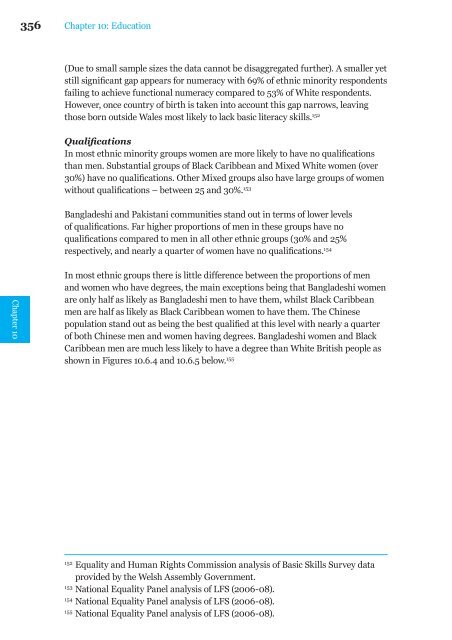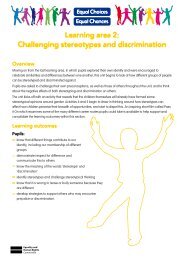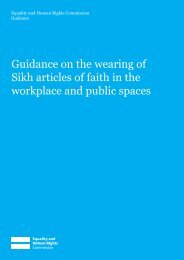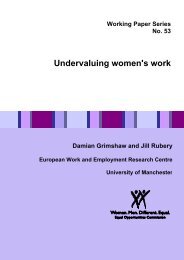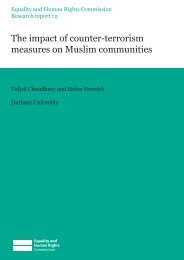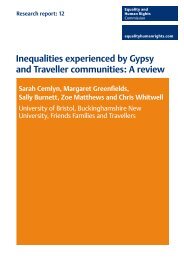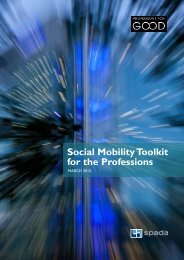Chapter 10: Education - Equality and Human Rights Commission
Chapter 10: Education - Equality and Human Rights Commission
Chapter 10: Education - Equality and Human Rights Commission
You also want an ePaper? Increase the reach of your titles
YUMPU automatically turns print PDFs into web optimized ePapers that Google loves.
356<br />
<strong>Chapter</strong> <strong>10</strong>: <strong>Education</strong><br />
(Due to small sample sizes the data cannot be disaggregated further). A smaller yet<br />
still significant gap appears for numeracy with 69% of ethnic minority respondents<br />
failing to achieve functional numeracy compared to 53% of White respondents.<br />
However, once country of birth is taken into account this gap narrows, leaving<br />
those born outside Wales most likely to lack basic literacy skills. 152<br />
Qualifications<br />
In most ethnic minority groups women are more likely to have no qualifications<br />
than men. Substantial groups of Black Caribbean <strong>and</strong> Mixed White women (over<br />
30%) have no qualifications. Other Mixed groups also have large groups of women<br />
without qualifications – between 25 <strong>and</strong> 30%. 153<br />
Bangladeshi <strong>and</strong> Pakistani communities st<strong>and</strong> out in terms of lower levels<br />
of qualifications. Far higher proportions of men in these groups have no<br />
qualifications compared to men in all other ethnic groups (30% <strong>and</strong> 25%<br />
respectively, <strong>and</strong> nearly a quarter of women have no qualifications. 154<br />
<strong>Chapter</strong> <strong>10</strong><br />
In most ethnic groups there is little difference between the proportions of men<br />
<strong>and</strong> women who have degrees, the main exceptions being that Bangladeshi women<br />
are only half as likely as Bangladeshi men to have them, whilst Black Caribbean<br />
men are half as likely as Black Caribbean women to have them. The Chinese<br />
population st<strong>and</strong> out as being the best qualified at this level with nearly a quarter<br />
of both Chinese men <strong>and</strong> women having degrees. Bangladeshi women <strong>and</strong> Black<br />
Caribbean men are much less likely to have a degree than White British people as<br />
shown in Figures <strong>10</strong>.6.4 <strong>and</strong> <strong>10</strong>.6.5 below. 155<br />
152<br />
<strong>Equality</strong> <strong>and</strong> <strong>Human</strong> <strong>Rights</strong> <strong>Commission</strong> analysis of Basic Skills Survey data<br />
provided by the Welsh Assembly Government.<br />
153<br />
National <strong>Equality</strong> Panel analysis of LFS (2006-08).<br />
154<br />
National <strong>Equality</strong> Panel analysis of LFS (2006-08).<br />
155<br />
National <strong>Equality</strong> Panel analysis of LFS (2006-08).


